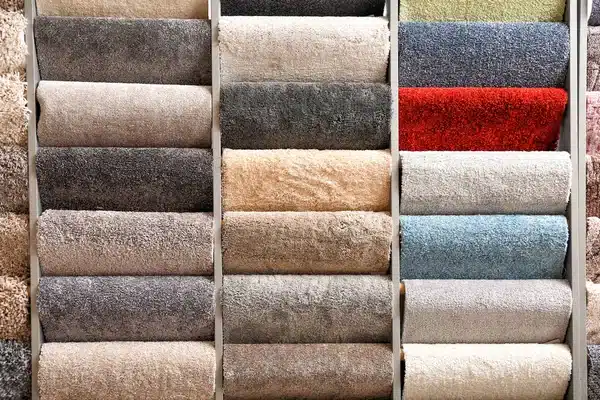China has long been a leading global supplier of a wide range of products, including carpets and rugs. As one of the oldest and most well-established carpet manufacturing countries, China has a rich history of producing high-quality carpets that cater to various markets across the globe. From intricate hand-knotted silk rugs to machine-made synthetic carpets, China offers a diverse selection of products that appeal to different tastes, styles, and budgets.
For businesses looking to import carpets, China is an attractive source due to its competitive pricing, skilled craftsmanship, and vast production capabilities. The country has numerous carpet manufacturing hubs, including Hebei, Tianjin, and Qinghai, which specialize in different types of carpets, ensuring a wide range of choices for buyers. Moreover, the Chinese government has created a favorable environment for exporters, providing efficient logistics infrastructure and supportive policies that make importing carpets seamless for international buyers.
Importing carpets from China can be a lucrative business opportunity for retailers, wholesalers, and even individual entrepreneurs. However, the process of importing involves various logistical, financial, and regulatory considerations. Whether you are new to the importing business or an experienced trader, understanding these intricacies can make the difference between a smooth import experience and one fraught with unexpected challenges.
In this comprehensive guide, we will explore everything you need to know about importing and shipping carpets from China to your destination. From selecting reliable suppliers to understanding shipping logistics, customs duties, and import costs, this guide will provide valuable insights to help you make informed decisions and ensure a smooth import process. We will also cover cost-saving tips and highlight how Tonlexing can assist you every step of the way, providing tailored logistics solutions to meet your specific needs. The Chinese carpet industry is known for its high-quality craftsmanship, diverse styles, and competitive pricing. Whether you’re a retailer, wholesaler, or interior designer, importing carpets from China can be a lucrative venture if you know how to navigate the complexities of international trade.
In this comprehensive guide, we will explore everything you need to know about importing and shipping carpets from China to your destination. From selecting reliable suppliers to understanding shipping logistics, customs duties, and import costs, this guide will provide valuable insights to help you make informed decisions and ensure a smooth import process.

Table of Contents
Why Import Carpets from China?
China is one of the largest exporters of carpets and rugs in the world, providing buyers with a variety of options, including handmade wool carpets, machine-made rugs, silk rugs, and synthetic carpets. Below are some key reasons why importing carpets from China can be beneficial for your business:
1. Cost-Effectiveness
One of the main advantages of importing carpets from China is the cost savings. Chinese manufacturers benefit from lower production costs, allowing them to offer competitively priced products without compromising on quality.
2. Wide Variety of Styles and Materials
Chinese carpet manufacturers offer a wide selection of styles, designs, and materials. Whether you’re looking for traditional oriental designs, modern geometric patterns, or custom-made options, you can find it in China. Additionally, the range of materials includes wool, silk, nylon, polyester, and acrylic, giving you plenty of options to choose from based on your market demand.
3. High-Quality Craftsmanship
Chinese manufacturers have a reputation for producing high-quality carpets with excellent craftsmanship. Many manufacturers offer advanced weaving techniques and use high-quality dyes to ensure durability and vibrant colors.
4. Customization Options
If you have specific requirements in terms of design, color, or size, many Chinese manufacturers provide customization services. This allows you to create unique products that cater specifically to your market, helping you differentiate yourself from competitors.
Finding Reliable Carpet Suppliers in China
Finding the right supplier is crucial to ensuring the success of your importing business. Here are some methods to find reliable carpet suppliers in China:
1. Online B2B Platforms
Online B2B platforms like Alibaba, Made-in-China, and Global Sources are excellent starting points for finding carpet suppliers. These platforms provide access to a large number of manufacturers, enabling you to compare products, read customer reviews, and communicate directly with suppliers.
2. Trade Shows
Attending trade shows is another effective way to find reliable carpet suppliers. Trade shows such as the Canton Fair and Domotex Asia/Chinafloor provide opportunities to meet suppliers in person, see product samples, and discuss your requirements directly.
3. Factory Visits
If possible, visiting the supplier’s factory is the best way to verify their credibility and assess their production capabilities. A factory visit allows you to see the manufacturing process, quality control procedures, and the types of carpets they produce.
4. Verify Supplier Credentials
It’s important to verify the credentials of any potential supplier to ensure they are legitimate. Look for business licenses, quality certifications, and export licenses. Request references from previous clients to assess their reliability.

Shipping Methods for Carpets from China
Once you have chosen a supplier, you need to decide on the most suitable shipping method for your carpets. The two primary options are sea freight and air freight:
1. Sea Freight
Sea freight is the most common and cost-effective method for shipping carpets from China, especially for large volumes. Carpets can be bulky, making sea freight the preferred option for reducing transportation costs.
Full Container Load (FCL): If you are importing a large quantity of carpets, an FCL is a good option. This method allows you to rent an entire container, providing better protection and reducing the risk of damage during transit.
Less than Container Load (LCL): For smaller shipments, LCL allows you to share a container with other importers, making it more economical. However, LCL shipments may take longer to arrive as the container needs to be consolidated and deconsolidated.
2. Air Freight
Air freight is a faster but more expensive option. It is suitable for smaller, high-value shipments or when you need to meet tight deadlines. Carpets shipped by air are generally packed tightly to minimize volume, reducing the cost of air freight.
3. Door-to-Door Shipping
Door-to-door shipping is a convenient option that includes pickup from the supplier’s location, transportation, customs clearance, and delivery to your warehouse or store. This option is more expensive but eliminates the hassle of dealing with multiple logistics providers.
Shipping Costs and Transit Time
1. Shipping Costs
The cost of shipping carpets from China depends on several factors, including the shipping method, volume, weight, and destination. Below are general cost estimates:
Sea Freight (FCL): Shipping a 20ft container from China to the Middle East (including Kuwait) typically costs between $1,500 and $2,500, depending on the season and availability.
Sea Freight (LCL): Costs for LCL shipments are calculated based on CBM (cubic meters), and typically range from $100 to $150 per CBM.
Air Freight: Air freight costs can vary significantly, ranging from $5 to $8 per kilogram. It is more expensive than sea freight, but offers faster delivery times.
2. Transit Time
Sea Freight: The average transit time for sea freight from China to Kuwait or other Middle Eastern countries is between 20 and 35 days, depending on the port of origin and any potential delays.
Air Freight: Air freight typically takes between 3 and 7 days from China to Kuwait, depending on the airline and customs clearance.
Customs Clearance and Import Duties
1. Import Duties and Taxes
Import duties and taxes are an important part of the cost calculation when importing carpets from China. Kuwait has a standard customs duty rate of 5% on most imported goods, including carpets. However, the exact duty rate may vary depending on the type of carpet and its material.
2. Required Documentation
To clear customs in Kuwait, you will need the following documents:
Commercial Invoice: Details of the goods, including value, quantity, and description.
Bill of Lading (BOL): A document issued by the shipping company as proof of shipment.
Packing List: A detailed list of the items being shipped, including dimensions and weight.
Certificate of Origin: A document certifying that the goods were manufactured in China.
3. Working with a Customs Broker
Working with a customs broker can simplify the customs clearance process. A broker is knowledgeable about local regulations and can ensure that all necessary documentation is prepared, helping you avoid delays or penalties.
Packaging and Labeling Requirements
Proper packaging and labeling are essential to ensure that your carpets arrive at their destination in good condition and comply with customs regulations:
1. Packaging
Rolls vs. Flat Packaging: Carpets can be shipped in rolls or flat-packed, depending on the type of carpet and the available space. Rolled packaging is common for larger carpets, while smaller rugs may be packed flat to save space.
Protection: Carpets should be wrapped in plastic sheeting or polyethylene film to protect them from moisture and dirt during transit. For more valuable carpets, additional padding or cardboard tubes may be used.
2. Labeling
Product Labels: Each carpet should have a label indicating the material, size, and origin. Labels must be clearly visible and securely attached to each item.
Shipping Labels: Shipping labels should include all relevant information, such as the consignee’s address, shipment tracking number, and handling instructions.
Cost-Saving Tips for Importing Carpets
1. Bulk Ordering
If possible, order carpets in bulk to take advantage of economies of scale. Larger orders can help you negotiate better prices with suppliers and reduce per-unit shipping costs.
2. Choose Sea Freight for Large Shipments
Sea freight is significantly cheaper than air freight, especially for bulky items like carpets. If time permits, opt for sea freight to reduce overall shipping costs.
3. Work with a Reliable Freight Forwarder
Partnering with a reliable freight forwarder like Tonlexing can help you navigate the complexities of international shipping, negotiate competitive rates, and ensure that your shipment complies with all regulations.
4. Plan for Seasonal Demand
Shipping costs can vary depending on the time of year. Avoid peak seasons, such as Chinese New Year, when shipping rates are higher due to increased demand. Planning your shipments during off-peak periods can help you save money.

How Tonlexing Can Assist You in Importing Carpets from China
Tonlexing is a leading freight forwarding company that specializes in helping businesses import goods from China to destinations worldwide, including Kuwait and the Middle East. Our services are tailored to meet the unique needs of each client, ensuring a smooth and cost-effective shipping experience.
1. Comprehensive Shipping Solutions
We offer a wide range of shipping options, including FCL, LCL, air freight, and door-to-door services. Our team will work with you to determine the best shipping method based on your budget and timeline.
2. Competitive Rates
Our extensive network of carriers and logistics partners allows us to offer competitive shipping rates that help you minimize costs while ensuring reliable and timely deliveries.
3. Customs Brokerage Services
Navigating the customs process can be challenging, especially for first-time importers. Our experienced customs brokers handle all aspects of the customs clearance process, ensuring compliance with regulations and facilitating a smooth clearance of your carpets at the destination.
4. Real-Time Shipment Tracking
We understand the importance of staying informed about your shipments. Tonlexing provides real-time tracking for all shipments, allowing you to monitor the status of your goods from China to their final destination.
5. Personalized Support
At Tonlexing, we believe in providing personalized support to each client. Our dedicated account managers are available to answer your questions, provide updates, and guide you through the shipping process from start to finish.
6. Warehousing and Distribution
In addition to shipping, we also offer warehousing and distribution services. If you need to store your carpets before distribution, we have secure warehousing options available in key locations, ensuring that your products are safely stored and ready for delivery when needed.
Key Considerations for Importing Carpets from China
1. Quality Control and Inspection
Maintaining product quality is essential to ensuring customer satisfaction and avoiding costly returns. Here are some tips for effective quality control when importing carpets:
Pre-Shipment Inspection: Arrange for a third-party inspection service to conduct a pre-shipment inspection. This will ensure that the carpets meet your quality standards before they leave the factory.
Sampling: Request samples from suppliers before placing a bulk order. This will allow you to assess the quality of the materials and craftsmanship.
On-Site Inspections: If possible, visit the factory to conduct on-site inspections of the production process. This can help you identify potential issues early and ensure consistent quality.
2. Understanding Incoterms
When negotiating with suppliers, it’s important to understand Incoterms (International Commercial Terms). Incoterms define the responsibilities of the buyer and seller during shipping. Some common Incoterms include:
EXW (Ex Works): The buyer is responsible for all transportation costs from the factory to the destination.
FOB (Free on Board): The seller is responsible for delivering the goods to the port and loading them onto the vessel. The buyer covers all costs from the port onwards.
CIF (Cost, Insurance, and Freight): The seller covers the cost of goods, insurance, and freight to the destination port, but the buyer is responsible for customs clearance and other destination costs.
DDP (Delivered Duty Paid): The seller handles all aspects of shipping, including customs clearance and payment of duties, making it the most convenient option for the buyer.
Common Challenges and How to Overcome Them
1. Delays in Shipping
Shipping delays are a common challenge when importing from China. Delays can be caused by various factors, including congestion at ports, customs clearance issues, and bad weather. To mitigate delays:
Plan Ahead: Allow extra time for your shipments to account for unexpected delays.
Work with Reliable Partners: Choose reliable freight forwarders and customs brokers who can expedite the shipping and clearance process.
Track Shipments: Use real-time tracking to stay informed about the status of your shipment and address any issues promptly.
2. Communication Barriers
Language and cultural differences can create communication challenges when dealing with suppliers in China. To overcome this:
Use Clear and Concise Language: Avoid jargon and be as clear as possible when communicating requirements.
Work with an Agent: Hiring a sourcing agent can help bridge the communication gap and ensure that your requirements are understood and met by the supplier.
3. Customs Issues
Customs clearance can be complex, and any mistakes can lead to delays, fines, or seizure of goods. To avoid customs issues:
Prepare All Documents: Ensure that all required documents are accurate and complete before the shipment arrives at the port.
Hire a Customs Broker: A customs broker can help you navigate the customs process, ensuring compliance with regulations and reducing the risk of delays.
Conclusion
Importing and shipping carpets from China can be a highly rewarding venture, offering access to high-quality products at competitive prices. However, understanding the logistics, customs requirements, and best practices is essential for a successful import experience. By choosing the right suppliers, selecting the appropriate shipping method, and working with reliable partners like Tonlexing, you can streamline the process and ensure your carpets arrive on time and in excellent condition.
Tonlexing offers a wide range of services to assist you in every step of the importing process, from sourcing and shipping to customs clearance and warehousing. Contact us today to learn how we can help make your importing journey smooth, cost-effective, and hassle-free.


